The days when men dominated the literary limelight are long gone. Gone too are the days when to most people the idea of “literature written by women” meant opening the floodgates to a world of romantic and usually unrequited love. The benches have disappeared under a blanket of wild roses, the pink umbrellas from Monet’s paintings have been put away, the heart pierced by an arrow on the birch tree beyond the field has been devoured by time.
Dusk falls and a once chaste, naïve girl from high society takes off her elegant chemise the colour of innocence. She is naked. In the morning she awakes as a new woman. The morning coffee tastes just as it should. She lights her first cigarette, throws a satin gown round her shoulders and sits down to a blank sheet of paper. She begins to write. She writes about modern women’s literature from the present, which with every word is becoming the past. She is thoughtful, bright and every inch a woman. She has matured from a naïve, sighingly romantic girl and has plunged headlong into the mysterious world of literature, which remains closed off to women lacking in courage. She opens the gate, whose handle gleams from the touch of predominantly male hands, and starts to write the first paragraph on modern female literature.
The archetypal modern female writer is a woman who is talented, educated, open-minded and knows herself. She is not worried that she might shock with themes that go beyond the boundaries, because there are no boundaries. She doesn’t even mind offering up (though not on a silver platter) part of her intimate life to readers and critics who read between the lines. On the contrary, she is able to use her individuality as a selling point and thus extend a helping hand to those who have experienced something similar but haven’t found the courage to speak or write about it for fear of criticism.
The modern Czech female novelist writes about Czech history and the lives of those who have been psychologically scarred by it. She is interested in far-off countries with different cultures and she writes about the local people as though they were our neighbours. The modern Czech female novelist writes about the love of a woman for a man and about the love of a woman for a woman. She opens up what is still a sensitive topic for many people: sexuality and sexual orientation. The modern Czech female writer does not know the meaning of the word taboo. She enjoys controversy, but she does not deliberately court it. She knows her worth. She likes openness and digs deep down to its very core. In her writing she draws you in with the verisimilitude of the main characters’ feelings, while also masterfully handling the plot. The modern Czech female writer seems to pull hitherto invisible (or rather unseen) themes out of her hat, and yet even she likes to return home, to be a little girl again, hiding behind her mother’s skirts. A little girl who can believe anything that comes into her head. At least until that moment when she wakes up to a new morning and everything has suddenly changed.
The twenty-first-century publishing industry has been churning out book after book. Some are swept away by time while others endure. The most successful ones also usher their author into the spotlight, and from that point on critics and readers will expect one miracle after another from them to stir up the stagnant literary waters. And then there are all the different literary prizes as indicators of the quality of new publications. If a Czech book is widely read, is interesting and has won a literary prize, then translators will soon set their sights on it. And thus the modern Czech book leaves its native land.
Which modern Czech female writers (and books written by them) now form part of the contemporary Czech literature scene? First of all, we’ll look at the stand-out names. These are: Zuzana Brabcová, Daniela Hodrová, Radka Denemarková, Petra Hůlová, Kateřina Tučková, Jakuba Katalpa and Irena Dousková. It is worth adding that it would be very difficult, if not impossible, to create a kind of league table of writers, where individual authors would be ranked according to how widely read and translated they were and how many awards they had won. Therefore, we are only going to look at those women writers who appear on CzechLit. This is a kind of showcase for high-quality works of modern Czech literature that have been adorned with various literary prizes, which has led to them being translated into many different languages.
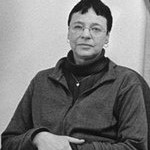 The first to emerge onto the scene was Zuzana Brabcová (1959 – 2015), who was the first ever recipient of the Jiří Orten Prize in 1987. As with several other female writers who we will look at, Zuzana Brabcová was endowed with a love of literature by her family. She was the daughter of the literary critic and historian Jiří Brabec and the literary historian, editor and translator Zina Trochová. Zuzana Brabcová was the author of six novels and at the same time worked as a publishing editor at Český spisovatel, Hynek and Garamond. She received the Jiří Orten Prize for her second novel, Daleko od stromu [Chip off the Old Block], from 1984. It looks at the metaphorical floods of the 1970s and early 1980s, when Prague was submerged by the hungry waves of socialism. Her lesbian novel Rok Perel [Year of Pearls] from 2000 received a particularly stormy reception; during the launch of the book she openly stated that she shared a household with her daughter, her husband and her girlfriend. She then received a Magnesia Litera in 2013 for her fifth novel, Stropy [Ceilings]. In this novel the writer dealt with the subject of people trapped in psychiatric clinics, and this paved the way for all kinds of inner dialogues. She shifts from reality to dreams and back again, blurring the borders between fantasy and what is real. The Egyptian translator Khalid Biltagi was so impressed by Stropy that he chose to translate it into Arabic. He commented that “I enjoyed Ceilings tremendously. It is an amazing novel and very challenging to translate. The narration is so magical that as soon as my Arabic translation came out various reviews immediately appeared, and so the book made its way into academic circles.”
The first to emerge onto the scene was Zuzana Brabcová (1959 – 2015), who was the first ever recipient of the Jiří Orten Prize in 1987. As with several other female writers who we will look at, Zuzana Brabcová was endowed with a love of literature by her family. She was the daughter of the literary critic and historian Jiří Brabec and the literary historian, editor and translator Zina Trochová. Zuzana Brabcová was the author of six novels and at the same time worked as a publishing editor at Český spisovatel, Hynek and Garamond. She received the Jiří Orten Prize for her second novel, Daleko od stromu [Chip off the Old Block], from 1984. It looks at the metaphorical floods of the 1970s and early 1980s, when Prague was submerged by the hungry waves of socialism. Her lesbian novel Rok Perel [Year of Pearls] from 2000 received a particularly stormy reception; during the launch of the book she openly stated that she shared a household with her daughter, her husband and her girlfriend. She then received a Magnesia Litera in 2013 for her fifth novel, Stropy [Ceilings]. In this novel the writer dealt with the subject of people trapped in psychiatric clinics, and this paved the way for all kinds of inner dialogues. She shifts from reality to dreams and back again, blurring the borders between fantasy and what is real. The Egyptian translator Khalid Biltagi was so impressed by Stropy that he chose to translate it into Arabic. He commented that “I enjoyed Ceilings tremendously. It is an amazing novel and very challenging to translate. The narration is so magical that as soon as my Arabic translation came out various reviews immediately appeared, and so the book made its way into academic circles.”
Zuzana Brabcová’s novels have been translated into a number of foreign languages including German, Swedish, Italian, Danish, Slovenian and Hungarian.
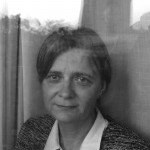 Another woman on the modern Czech literature scene is the novelist, poet, translator and literary theorist Daniela Hodrová (*1946), who is the recipient of the State Award for Literature, the Franz Kafka Prize and most recently the Magnesia Litera. She is the daughter of the theatre and film actor Zdeněk Hodr, and her husband was the poet, novelist and translator Karel Milota. Daniela Hodrová worked as an editor at the Odeon publishing house, and then for several years was head of the department of literary theory at the Institute for Czech Literature.
Another woman on the modern Czech literature scene is the novelist, poet, translator and literary theorist Daniela Hodrová (*1946), who is the recipient of the State Award for Literature, the Franz Kafka Prize and most recently the Magnesia Litera. She is the daughter of the theatre and film actor Zdeněk Hodr, and her husband was the poet, novelist and translator Karel Milota. Daniela Hodrová worked as an editor at the Odeon publishing house, and then for several years was head of the department of literary theory at the Institute for Czech Literature.
Daniela Hodrová’s works have been characterized as postmodern and due to the abundance of metaphors and allegories require a more sophisticated reader. With her fondness for describing the psychological states of her characters, her style suggests the influence of Ladislav Fuks, a writer of psychological prose with an undertone of anxiety. Her most important works include the trilogy Trýznivé město: Podobojí, Kukly, Théta [City of Torment: A Kingdom of Souls, Chrysalides, Theta], published in 1991, and Román zasvěcení [The Novel of Initiation] from 1993. In her trilogy of novels, the author wanders around a mysterious Prague and tries to come to terms with the death of those close to her through her written and unwritten life. She inquires into the spiritual meaning of existence and blurs the line between terrestrial and extraterrestrial life. On the other hand, The Novel of Initiation is a journey charting the metamorphosis of the novel of initiation1Novel of Initiation (from Latin initium = start, entry), also a novel of consecration – a type of novel characterized by the main character’s efforts at esoteric (ESP, deep) knowledge, attempts at inner cleansing, reincarnation, communion with God, discovering one’s identity, moving from one state to another higher and more perfect state, internal transformation through the highest form of knowledge; it contains elements of an educational and developmental novel. as it was known in the ancient world and the Middle Ages and as we know it today in the modern age2For example, in Franz Kafka’s Castle and Umbert Eco’s Name of the Rose. This year the author was awarded the Magnesia Litera Book of the Year for her most recent novel, Točité věty [Spiral Sentences]. Here too Daniela Hodrová raises the half-forgotten dead from the other side to meet with the living. She layers memories into sentences which spiral in a cycle. “A word longs for a word, a sentence winds into a sentence, sentences of words are the victims of an unknown prophecy, between words a sentence, to branch out, to prophesy…”3http://archiv.ihned.cz/c1-65235680-magnesia-litera-hodrova-bolava-ceny Her apparently endless sentences have the feel of an experimental stream of consciousness with elements of poetry. This style gives her book a certain musical melody, where Munch’s Scream occasionally intrudes with all of its vital urgency. Today it is possible to read Daniela Hodrová’s works in English, German, French, Italian, Polish and Bulgarian.
Radka Denemarková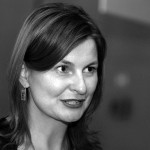 (*1968) has enjoyed even greater success abroad and is one of the most widely translated modern Czech female authors. She has not only found success as a novelist, but also as a literary historian, screenwriter, dramaturge and translator of German prose and plays. She has also worked as a researcher at the Academy of Science’s Institute for Czech Literature. Radka Denemarková’s books have been translated into fifteen languages. She is also the recipient of numerous important literary and drama awards4She immediately won three Magnesia Literas, each for a different genre. For the novel Money from Hitler she was awarded a Magnesia Litera for prose in 2007; Smrt, nebudeš se báti aneb Příběh Petra Lébla [Thou Shalt Not Fear Death: The Story of Petr Lébl, 2009] was awarded the Magnesia Litera for journalism, and finally she was also awarded a Magnesia Litera for translation for Herta Müller’s The Hunger Angel (2011).. Her novel Peníze od Hitlera. Letní mozaika [Money from Hitler: A Summer Mosaic] from 2006 won the Magnesia Litera for prose. Two women in two different time lines, a hunger for freedom and a desire for justice. Lawlessness, violence, the lifelong trauma of innocents and the shadow of revenge – these are the central ingredients in the dark story of a series of events stretching back to 1945 which have tarnished Czech history forever. The book is a powerful, raw story which bears out Franz Kafka’s quote that “A book must be the axe for the frozen sea within us.”5From an interview with Denemarková for Literární.cz.
(*1968) has enjoyed even greater success abroad and is one of the most widely translated modern Czech female authors. She has not only found success as a novelist, but also as a literary historian, screenwriter, dramaturge and translator of German prose and plays. She has also worked as a researcher at the Academy of Science’s Institute for Czech Literature. Radka Denemarková’s books have been translated into fifteen languages. She is also the recipient of numerous important literary and drama awards4She immediately won three Magnesia Literas, each for a different genre. For the novel Money from Hitler she was awarded a Magnesia Litera for prose in 2007; Smrt, nebudeš se báti aneb Příběh Petra Lébla [Thou Shalt Not Fear Death: The Story of Petr Lébl, 2009] was awarded the Magnesia Litera for journalism, and finally she was also awarded a Magnesia Litera for translation for Herta Müller’s The Hunger Angel (2011).. Her novel Peníze od Hitlera. Letní mozaika [Money from Hitler: A Summer Mosaic] from 2006 won the Magnesia Litera for prose. Two women in two different time lines, a hunger for freedom and a desire for justice. Lawlessness, violence, the lifelong trauma of innocents and the shadow of revenge – these are the central ingredients in the dark story of a series of events stretching back to 1945 which have tarnished Czech history forever. The book is a powerful, raw story which bears out Franz Kafka’s quote that “A book must be the axe for the frozen sea within us.”5From an interview with Denemarková for Literární.cz.
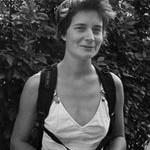 Another important writer on the modern Czech literary scene is Petra Hůlová (*1979), whose work also received several literary prizes. Her debut novel, Paměť mojí babičce [All This Belongs to Me], from 2002 was awarded the Magnesia Litera in the category Discovery of the Year. The novel is mainly set in Mongolia, where the writer had found inspiration during her travels6Petra Hůlová was in Mongolia from 2000 to 2001 as part of her course in Mongolian studies at Charles University’s Faculty of Arts. She also visited the USA, which inspired her to write Cirkus Les Mémoires.. Her book tells the stories of Mongolian women growing up in a traditional society with all its advantages and pitfalls. Her fourth novel, Umělohmotný třípokoj [Plastic-furnished, Three-bedroom], was also a success and won the Jiří Orten Prize. This thematically and stylistically bold novel is also indirectly related to Alice in Wonderland, though written for adults. It is filled with erotica and the long-harboured desires of all those who long to throw off their inhibitions but do not have access to the world beyond the mirror.
Another important writer on the modern Czech literary scene is Petra Hůlová (*1979), whose work also received several literary prizes. Her debut novel, Paměť mojí babičce [All This Belongs to Me], from 2002 was awarded the Magnesia Litera in the category Discovery of the Year. The novel is mainly set in Mongolia, where the writer had found inspiration during her travels6Petra Hůlová was in Mongolia from 2000 to 2001 as part of her course in Mongolian studies at Charles University’s Faculty of Arts. She also visited the USA, which inspired her to write Cirkus Les Mémoires.. Her book tells the stories of Mongolian women growing up in a traditional society with all its advantages and pitfalls. Her fourth novel, Umělohmotný třípokoj [Plastic-furnished, Three-bedroom], was also a success and won the Jiří Orten Prize. This thematically and stylistically bold novel is also indirectly related to Alice in Wonderland, though written for adults. It is filled with erotica and the long-harboured desires of all those who long to throw off their inhibitions but do not have access to the world beyond the mirror.
The final award in the trio was the Josef Škvorecký Prize for the adventure novel Stanice Tajga [Tajga Station] in 2008. In the novel Petra Hůlová heads to post-Soviet Russia, specifically the Siberian taiga, as pictured on the ice-white cover of the book. She heads to “an infinitely wide and sparsely populated area, which we see reduced to local labour camps, a railway and the remains of the original tribal societies with their rich mythology. The writer included all of this in her book. Her fifth novel unfolds between the years immediately following the war and the present – and the Siberian village of Charyn, which reflects the ‘old’ world with room for the ‘spirit of the taiga’, is contrasted with the ‘new’, modern and developed world, which is synecdochially represented by Denmark.”7From a review by Radim Kopáč in Právo
Petra Hůlová’s books have been translated into English, German, French, Italian, Polish and Hungarian. The important Egyptian Bohemist Khalid Biltagi selected Hůlová’s Strážci občanského dobra [Guardians of the Civic Good]8It is a work which reflects post-revolutionary Czech developments. In another of her dark books freedom and new opportunities do flourish, but on the other hand chaos and pessimism also develop. Here the translator found parallels with the post-revolution period in Egypt, where one bleak regime was exchanged for another. to translate into Arabic.
 The writer and art historian Kateřina Tučková (*1980) first entered the public consciousness through her second book Vyhnání Gerty Schnirch [The Expulsion of Gerta Schnirch]9At the end of April 1945, German-speaking Brno residents were expelled from their homes and driven inhumanely across Pohořelice towards Austria. Most of the people were women, children and the elderly, and no attempts were made to prove if they had collaborated with fascist Germany. This fictitious account of the expulsion of young Gerta opened up a long-closed chapter in Brno’s history and elsewhere, which led to the politically formulated Brno Declaration of Reconciliation in 2015. One year prior to this, HaDivadlo produced a staged adaptation of the book, directed by Marián Amsler. During her work on the book the author walked along the stretch from Brno to Pohořelice with a rucksack and pram in order to gain at least some idea of what those expellees had experienced. from 2009. The book was based on real-life events and tells the story of a German girl who is expelled from her home in May 1945 as part of the Brno march of death. The book has been reprinted several times and was nominated for the Jiří Orten Prize. Even more popular with readers, however, was Kateřina Tučková’s second novel, entitled Žítkovské bohyně [The Žítková Goddesses], which was published in 2012. Before writing the novel, the author carried out thorough research and conducted interviews with people who lived in the area at the time. The novel is set in the White Carpathians, specifically in a region known as Žítková. It was home to witches and herbalists who had been persecuted by the Catholic Church and were later completely eradicated by the communist regime. The Žítková Goddesses is the story of the female soul and the art of magic. Like the author’s previous work, it refers to events buried in Czech history. For The Žítková Goddesses Kateřina Tučková received the Josef Škvorecký Prize, the Czech Bestseller Award, the Readers’ Award in the Magnesia Litera competition and the Czech Book Readers’ Award. The novel became the most frequently borrowed book by a Czech author from Czech libraries in 2013, and by 2014 had sold more than 100,000 copies. It has been translated into eight languages including German, Polish and Arabic.
The writer and art historian Kateřina Tučková (*1980) first entered the public consciousness through her second book Vyhnání Gerty Schnirch [The Expulsion of Gerta Schnirch]9At the end of April 1945, German-speaking Brno residents were expelled from their homes and driven inhumanely across Pohořelice towards Austria. Most of the people were women, children and the elderly, and no attempts were made to prove if they had collaborated with fascist Germany. This fictitious account of the expulsion of young Gerta opened up a long-closed chapter in Brno’s history and elsewhere, which led to the politically formulated Brno Declaration of Reconciliation in 2015. One year prior to this, HaDivadlo produced a staged adaptation of the book, directed by Marián Amsler. During her work on the book the author walked along the stretch from Brno to Pohořelice with a rucksack and pram in order to gain at least some idea of what those expellees had experienced. from 2009. The book was based on real-life events and tells the story of a German girl who is expelled from her home in May 1945 as part of the Brno march of death. The book has been reprinted several times and was nominated for the Jiří Orten Prize. Even more popular with readers, however, was Kateřina Tučková’s second novel, entitled Žítkovské bohyně [The Žítková Goddesses], which was published in 2012. Before writing the novel, the author carried out thorough research and conducted interviews with people who lived in the area at the time. The novel is set in the White Carpathians, specifically in a region known as Žítková. It was home to witches and herbalists who had been persecuted by the Catholic Church and were later completely eradicated by the communist regime. The Žítková Goddesses is the story of the female soul and the art of magic. Like the author’s previous work, it refers to events buried in Czech history. For The Žítková Goddesses Kateřina Tučková received the Josef Škvorecký Prize, the Czech Bestseller Award, the Readers’ Award in the Magnesia Litera competition and the Czech Book Readers’ Award. The novel became the most frequently borrowed book by a Czech author from Czech libraries in 2013, and by 2014 had sold more than 100,000 copies. It has been translated into eight languages including German, Polish and Arabic.
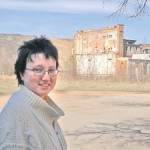 Another important writer is Jakuba Katalpa, née Tereza Jandová (*1979). Her first novel, Je hlína k snědku? [Is Soil for Eating?], from 2006 immediately met with critical success. Here, amid all kinds of temptations, the author relates a powerfully erotic tale, which should, however, be seen only as a secondary storyline. Apart from its sensuality, the other main feature of the book is its sensuousness – the book is primarily a very artfully arranged mosaic of scents, smells, colours, sounds and orgasmic experiences. However, one of Jakuba Katalpa’s major literary achievements was her historically themed novel Němci [Germans], which was published in 2013. In a traditionally written narrative the author returns to events from the Second World War. She follows the life of the main character, a German teacher who finds herself working in the Sudetenland during the war. Jakuba Katalpa treats this theme, which is popular with both writers and readers, with a genuine feeling for the personal story of the main character, which “which not only acts as an outline for a colouring book of history, but as a credible and important chronicle.”10http://www.czechlit.cz/en/author/jakuba-katalpa-en/ The novel Germans deservedly won the Josef Škvorecký Prize as well as the Czech Book Award, which brought it to the attention of translators. Soon afterwards it was translated into German, Slovenian, Bulgarian and Macedonian.
Another important writer is Jakuba Katalpa, née Tereza Jandová (*1979). Her first novel, Je hlína k snědku? [Is Soil for Eating?], from 2006 immediately met with critical success. Here, amid all kinds of temptations, the author relates a powerfully erotic tale, which should, however, be seen only as a secondary storyline. Apart from its sensuality, the other main feature of the book is its sensuousness – the book is primarily a very artfully arranged mosaic of scents, smells, colours, sounds and orgasmic experiences. However, one of Jakuba Katalpa’s major literary achievements was her historically themed novel Němci [Germans], which was published in 2013. In a traditionally written narrative the author returns to events from the Second World War. She follows the life of the main character, a German teacher who finds herself working in the Sudetenland during the war. Jakuba Katalpa treats this theme, which is popular with both writers and readers, with a genuine feeling for the personal story of the main character, which “which not only acts as an outline for a colouring book of history, but as a credible and important chronicle.”10http://www.czechlit.cz/en/author/jakuba-katalpa-en/ The novel Germans deservedly won the Josef Škvorecký Prize as well as the Czech Book Award, which brought it to the attention of translators. Soon afterwards it was translated into German, Slovenian, Bulgarian and Macedonian.
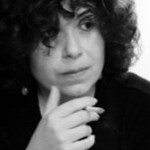 The scriptwriter, journalist, novelist and poet Irena Dousková (*1964) is also among the most widely translated female writers. She entered the public consciousness primarily through the novel Hrdý Budžes [B. Proudew] from 1998, which was made famous by a stage version starring Bára Hrzánová. B. Proudew is about the life of a schoolgirl during the communist era with all its spontaneity and absurdity. The tragicomic treatment of the subject was a hit with readers11In the Czech Republic 60,000 copies have been sold and the book has become a bestseller reprinted many times. and theatregoers12The theatrical version has had more than 600 reprises. The theatrical dramatization has also been broadcast repeatedly on Czech Television. alike. It is one of the best known works of Czech prose published after the Velvet Revolution of 1989. Translations of the book have already come out in nine languages including English, German and Polish.
The scriptwriter, journalist, novelist and poet Irena Dousková (*1964) is also among the most widely translated female writers. She entered the public consciousness primarily through the novel Hrdý Budžes [B. Proudew] from 1998, which was made famous by a stage version starring Bára Hrzánová. B. Proudew is about the life of a schoolgirl during the communist era with all its spontaneity and absurdity. The tragicomic treatment of the subject was a hit with readers11In the Czech Republic 60,000 copies have been sold and the book has become a bestseller reprinted many times. and theatregoers12The theatrical version has had more than 600 reprises. The theatrical dramatization has also been broadcast repeatedly on Czech Television. alike. It is one of the best known works of Czech prose published after the Velvet Revolution of 1989. Translations of the book have already come out in nine languages including English, German and Polish.
Children, something very sad has happened – your classmate Olinka Hlubinová has died, because she was very ill with heart troubles.” So that gave us all a fright, and then we went home. And now I can’t help thinking about it all the time. Olinka isn’t from 2B like me, she’s from 2A, but still. She has short black hair and she’s awfully good at drawing. I don’t really know her, but the teacher has shown us pictures that Olinka drew loads of times, because they’re really good. Now she’s dead, so I probably won’t see her again, but the teacher can go right on showing everybody those pictures. It’s kind of weird.
When I got home I told my mum about it right away, and I asked her why Olinka had died when she was just a little girl, because I already know that somebody dies and then they never come home or go anywhere ever again, but usually when they’re old. And I also asked what heart troubles are and it seems that heart troubles is the worst illness. If someone has heart troubles, then they almost always die. Then Mum gave me two biscuits, probably because I was really down in the dumps. So I’m happy and yet I’m still sad.
—B. Proudew (Hynek, 1998)
Irena Dousková’s poetry is also worthy of attention. In a collection of poems from 2009 entitled Bez karkulky [Without the Riding Hood] she uses humour and self-irony to mask the anxiety in the world of a faltering soul. Don’t expect a lyrical book of fairy tales, but rather some tough and bleak writing full of happy beginnings and macabre endings. The collection Without the Riding Hood is actually about what it would be like if well-known fairy tales unfolded in the way real life does, with all its cruelty and lack of happy endings.
A number of other female writers deserve a mention for their contribution to modern Czech literature. Foremost among them are Eva Hauserová, Kateřina Rudčenková, Lenka Lagronová, Petra Soukupová, Markéta Pilátová, Magdaléna Platzová, Magdalena Wagnerová, Lucie Lomová and two writers who share the same surname – Petra Procházková and Iva Procházková.
Eva Hauserová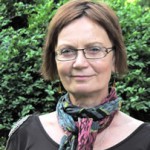 (*1954) is first and foremost one of the most important Czech feminists. However, she is also a writer, journalist and translator. She was employed at the magazines ABC and Story and the science-fiction magazine Ikarie. She then worked at Harlequin Publishers and also as an advertising copywriter. She has translated a wide range of novels for women and published several guides to feminism. She was behind the translation of the famous play The Vagina Monologues by Eve Ensler.
(*1954) is first and foremost one of the most important Czech feminists. However, she is also a writer, journalist and translator. She was employed at the magazines ABC and Story and the science-fiction magazine Ikarie. She then worked at Harlequin Publishers and also as an advertising copywriter. She has translated a wide range of novels for women and published several guides to feminism. She was behind the translation of the famous play The Vagina Monologues by Eve Ensler.
 Another female writer whose work should not be overlooked is Kateřina Rudčenková (*1976), a poet and playwright. One play which stands out from her body of work for its quality is Niekur, for which she was awarded the 2006 Alfréd Radok Award. The play’s unusual title comes from Lithuanian and translates as “nowhere”. It refers to a chance love affair of restricted duration which takes place in a foreign land – i.e. “nowhere”. Another captivating piece of work is her poetry collection Chůze po dunách [Walking on Dunes], which was awarded the 2014 Magnesia Litera13In 2003 she also received the Hubert Burda Award, a German prize for Eastern European poets, for her poetry..
Another female writer whose work should not be overlooked is Kateřina Rudčenková (*1976), a poet and playwright. One play which stands out from her body of work for its quality is Niekur, for which she was awarded the 2006 Alfréd Radok Award. The play’s unusual title comes from Lithuanian and translates as “nowhere”. It refers to a chance love affair of restricted duration which takes place in a foreign land – i.e. “nowhere”. Another captivating piece of work is her poetry collection Chůze po dunách [Walking on Dunes], which was awarded the 2014 Magnesia Litera13In 2003 she also received the Hubert Burda Award, a German prize for Eastern European poets, for her poetry..
Red Landscape
you go through a red landscape
through ferrous plains
with the truth lodged in your subconscious
beside the bulbs of poisonous meadow saffron
you go into the distance
all the way to the ochre sea
on which they bob
quite happily
towards a sea full of crimson strawberries
the size of windows
into the distance to red-hot infinity
—Walking on Dunes (Fra, 2013)
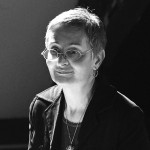 Another important woman on the Czech literary scene is the author of stage and radio plays Lenka Lagronová (*1963). Her play Terezka won the Alfréd Radok Award for play of the year in 1997. This work reflects the personal transformation of the author, who took monastic vows of poverty, chastity and obedience that same year. Lenka Lagronová’s dramas have been staged both in the Czech Republic and abroad14Her plays have been published in English and Korean translations..
Another important woman on the Czech literary scene is the author of stage and radio plays Lenka Lagronová (*1963). Her play Terezka won the Alfréd Radok Award for play of the year in 1997. This work reflects the personal transformation of the author, who took monastic vows of poverty, chastity and obedience that same year. Lenka Lagronová’s dramas have been staged both in the Czech Republic and abroad14Her plays have been published in English and Korean translations..
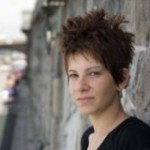 The novelist and scriptwriter Petra Soukupová (*1982) has won a number of major literary awards. She received the 2008 Jiří Orten Prize for her novel K moři [To the Seaside]. In it she examines an inability to communicate that can afflict even the closest family circle. In terms of style and ideas, the book has been compared to Virginia Woolf’s classic work To the Lighthouse. In 2010 she won the Magnesia Litera Book of the Year prize for the novel Zmizet [To Disappear]. Once again, this deals with the issue of family relations and the way in which momentary closeness quickly gives way to the habitual distance. Petra Soukupová has a wonderful talent for storytelling, through which she is able to make the reader reflect upon ostensibly undramatic events in life.
The novelist and scriptwriter Petra Soukupová (*1982) has won a number of major literary awards. She received the 2008 Jiří Orten Prize for her novel K moři [To the Seaside]. In it she examines an inability to communicate that can afflict even the closest family circle. In terms of style and ideas, the book has been compared to Virginia Woolf’s classic work To the Lighthouse. In 2010 she won the Magnesia Litera Book of the Year prize for the novel Zmizet [To Disappear]. Once again, this deals with the issue of family relations and the way in which momentary closeness quickly gives way to the habitual distance. Petra Soukupová has a wonderful talent for storytelling, through which she is able to make the reader reflect upon ostensibly undramatic events in life.
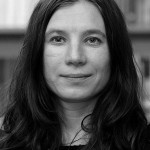 The writer, journalist and Hispanist Markéta Pilátová (*1973) has published in a variety of Czech media outlets and also writes song lyrics for the singer Monika Načeva. She earned success with her first very novel Žluté oči vedou domů [The Yellow Eyes Will Lead You Home] from 2007, which was nominated for a Magnesia Litera prize and the Josef Škvorecký Prize. The story is set in the world of Brazilian emigrants who start to loose their roots over time. Will they still find their way home? Markéta Pilátová’s books have been published in German, Dutch, Polish, Spanish and Portuguese translations.
The writer, journalist and Hispanist Markéta Pilátová (*1973) has published in a variety of Czech media outlets and also writes song lyrics for the singer Monika Načeva. She earned success with her first very novel Žluté oči vedou domů [The Yellow Eyes Will Lead You Home] from 2007, which was nominated for a Magnesia Litera prize and the Josef Škvorecký Prize. The story is set in the world of Brazilian emigrants who start to loose their roots over time. Will they still find their way home? Markéta Pilátová’s books have been published in German, Dutch, Polish, Spanish and Portuguese translations.
 The daughter of the famous writer and dissident Eda Kriseová, Magdaléna Platzová (*1972), has also made a name for herself within modern Czech literature. She is primarily a playwright, author of children’s books, and journalist. She has written for a number of important Czech media outlets and enjoyed great success with her stage plays Na útěku! [On the Run!] and Sayang15The play On the Run! from 1999 progressed to the final of the Alfréd Radok Awards competition for the best Czech theatre play; the play Sayang from 2000 did the same a year later. The play was staged as a dramatized reading at the Theatre on the Balustrade.. Her books have been published in English, Dutch and German.
The daughter of the famous writer and dissident Eda Kriseová, Magdaléna Platzová (*1972), has also made a name for herself within modern Czech literature. She is primarily a playwright, author of children’s books, and journalist. She has written for a number of important Czech media outlets and enjoyed great success with her stage plays Na útěku! [On the Run!] and Sayang15The play On the Run! from 1999 progressed to the final of the Alfréd Radok Awards competition for the best Czech theatre play; the play Sayang from 2000 did the same a year later. The play was staged as a dramatized reading at the Theatre on the Balustrade.. Her books have been published in English, Dutch and German.
Magdalena Wagnerová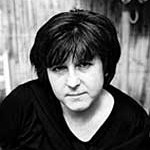 (*1960) is the author of novels, screenplays and many children’s books16She has been nominated for the Magnesia Litera prize and the Golden Ribbon for her charming story books.. Among other things, she wrote the screenplay for the feature film Saturnin. Her novel Papíří [Paper] from 2005, about a librarian who would like to fulfil his dreams, is remarkable and at times almost Kafkaesque.
(*1960) is the author of novels, screenplays and many children’s books16She has been nominated for the Magnesia Litera prize and the Golden Ribbon for her charming story books.. Among other things, she wrote the screenplay for the feature film Saturnin. Her novel Papíří [Paper] from 2005, about a librarian who would like to fulfil his dreams, is remarkable and at times almost Kafkaesque.
Sometimes he wondered whether the library books understood why he was unfaithful to them. By the same token, he contemplated whether his own books would abandon him if he lingered in the library until late. But the paper was lenient. The library books graciously tolerated their leader’s weekends as long as he returned on Monday, while the books at home tolerated their ruler’s working days as long as he returned before midnight. That was the unwritten agreement.
—Paper (Dybbuk, 2005)
 Comic-book literature also has an important female representative in the shape of Lucie Lomová (*1964). She was the winner of the 2011 Muriel comic-book prizes for best original screenplay and best original Czech comic for the graphic novel Divoši [Savages] and also for the best original book Anna chce skočit [Anna Wants to Jump]. The novel Divoši was first published in France and immediately met with a very positive response. It is no exaggeration to say that this, “the most extensive colour comic-book project since Saudek’s Muriel aims to become the most important Czech comic book abroad by employing a universal narrative technique without losing its quintessentially Czech poetic.”17From a review by the editor Richard Klíčník for iLiteratura.
Comic-book literature also has an important female representative in the shape of Lucie Lomová (*1964). She was the winner of the 2011 Muriel comic-book prizes for best original screenplay and best original Czech comic for the graphic novel Divoši [Savages] and also for the best original book Anna chce skočit [Anna Wants to Jump]. The novel Divoši was first published in France and immediately met with a very positive response. It is no exaggeration to say that this, “the most extensive colour comic-book project since Saudek’s Muriel aims to become the most important Czech comic book abroad by employing a universal narrative technique without losing its quintessentially Czech poetic.”17From a review by the editor Richard Klíčník for iLiteratura.
Petra Procházková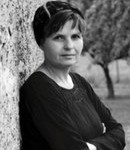 (*1964) is a writer, journalist and humanitarian worker. She worked as a war correspondent. In 2000 she was presented with the Medal of Merit by President Václav Havel18She has also been awarded the Mayor of the City of Pilsen’s prize for human rights (2000), the Quail Award (1999), the Ferdinand Peroutka Prize for journalism (1997) and the Gratias Agit award for promoting the good name of the Czech Republic abroad.. In her writing she primarily captures the lives of people in faraway war-torn countries. She touches upon the painful life stories of wives, mothers and daughters who have lost their loved ones to war. Her book Frišta [Freshta] about one family in Kabul has been translated into English and Polish.
(*1964) is a writer, journalist and humanitarian worker. She worked as a war correspondent. In 2000 she was presented with the Medal of Merit by President Václav Havel18She has also been awarded the Mayor of the City of Pilsen’s prize for human rights (2000), the Quail Award (1999), the Ferdinand Peroutka Prize for journalism (1997) and the Gratias Agit award for promoting the good name of the Czech Republic abroad.. In her writing she primarily captures the lives of people in faraway war-torn countries. She touches upon the painful life stories of wives, mothers and daughters who have lost their loved ones to war. Her book Frišta [Freshta] about one family in Kabul has been translated into English and Polish.
Iva Procházková (*1953), the daughter of the well-known writer Jan Procházka, writes books for adults as well as children’s literature. Her books have been published in fifteen languages. She is also the recipient of many literary awards19For her literary output she has received five Golden Ribbons and two Magnesia Literas in the category of books for childen and young adults. She was also awarded the most prestigious German prize for children’s books – the Friedrich Gerstäcker Award.. Among other things, she is the author of the dystopian prose work Tanec trosečníků [Dance of Castaways], published in 2006. In it the world is engulfed by a terrifying pandemic. Will love at least survive?
(*1953), the daughter of the well-known writer Jan Procházka, writes books for adults as well as children’s literature. Her books have been published in fifteen languages. She is also the recipient of many literary awards19For her literary output she has received five Golden Ribbons and two Magnesia Literas in the category of books for childen and young adults. She was also awarded the most prestigious German prize for children’s books – the Friedrich Gerstäcker Award.. Among other things, she is the author of the dystopian prose work Tanec trosečníků [Dance of Castaways], published in 2006. In it the world is engulfed by a terrifying pandemic. Will love at least survive?
Love certainly will survive – on the pages of books, in our relationship to them and perhaps also within us. There are many more female writers who have left their mark on modern Czech literature, but how many of them can we store in our memory? How many books can pass through our hands in the space of one short life? Whether written by women or men, they perform a valuable service for many of us by holding up a mirror to life. Perhaps it is appropriate to conclude this overview of women’s writing with a quote from a man – a philosopher, who once said that “I cannot teach anybody anything. I can only make them think.”20This philosopher is none other than Socrates.
Translated by Graeme Dibble
[ ]
Jarmila Flaková (*1985) gained a bachelor’s degree in Middle Eastern Studies and then a master’s degree in the Cultural Anthropology of the Middle East at the Faculty of Arts in Plzeň. She writes book reviews and other literary articles. Her texts have been published on several websites including Opus arabicum, iLiteratura, Vaseliteratura, E-kultura and StudentPoint, where she is also the editor of the literary section. She works closely with the publishing house Dar Ibn Rushd, for which she translated short stories from the book Modern Yemeni Stories. She writes poetry and prose, and some of her poems have been published in the Brno-based magazine Host. She often holds book readings in Plzeň. She is the co-organizer of the Plzeň Festival of Arabic Culture and is a great admirer of the writer Franz Kafka.
| 1. | ↑ | Novel of Initiation (from Latin initium = start, entry), also a novel of consecration – a type of novel characterized by the main character’s efforts at esoteric (ESP, deep) knowledge, attempts at inner cleansing, reincarnation, communion with God, discovering one’s identity, moving from one state to another higher and more perfect state, internal transformation through the highest form of knowledge; it contains elements of an educational and developmental novel. |
| 2. | ↑ | For example, in Franz Kafka’s Castle and Umbert Eco’s Name of the Rose |
| 3. | ↑ | http://archiv.ihned.cz/c1-65235680-magnesia-litera-hodrova-bolava-ceny |
| 4. | ↑ | She immediately won three Magnesia Literas, each for a different genre. For the novel Money from Hitler she was awarded a Magnesia Litera for prose in 2007; Smrt, nebudeš se báti aneb Příběh Petra Lébla [Thou Shalt Not Fear Death: The Story of Petr Lébl, 2009] was awarded the Magnesia Litera for journalism, and finally she was also awarded a Magnesia Litera for translation for Herta Müller’s The Hunger Angel (2011). |
| 5. | ↑ | From an interview with Denemarková for Literární.cz. |
| 6. | ↑ | Petra Hůlová was in Mongolia from 2000 to 2001 as part of her course in Mongolian studies at Charles University’s Faculty of Arts. She also visited the USA, which inspired her to write Cirkus Les Mémoires. |
| 7. | ↑ | From a review by Radim Kopáč in Právo |
| 8. | ↑ | It is a work which reflects post-revolutionary Czech developments. In another of her dark books freedom and new opportunities do flourish, but on the other hand chaos and pessimism also develop. Here the translator found parallels with the post-revolution period in Egypt, where one bleak regime was exchanged for another. |
| 9. | ↑ | At the end of April 1945, German-speaking Brno residents were expelled from their homes and driven inhumanely across Pohořelice towards Austria. Most of the people were women, children and the elderly, and no attempts were made to prove if they had collaborated with fascist Germany. This fictitious account of the expulsion of young Gerta opened up a long-closed chapter in Brno’s history and elsewhere, which led to the politically formulated Brno Declaration of Reconciliation in 2015. One year prior to this, HaDivadlo produced a staged adaptation of the book, directed by Marián Amsler. During her work on the book the author walked along the stretch from Brno to Pohořelice with a rucksack and pram in order to gain at least some idea of what those expellees had experienced. |
| 10. | ↑ | http://www.czechlit.cz/en/author/jakuba-katalpa-en/ |
| 11. | ↑ | In the Czech Republic 60,000 copies have been sold and the book has become a bestseller reprinted many times. |
| 12. | ↑ | The theatrical version has had more than 600 reprises. The theatrical dramatization has also been broadcast repeatedly on Czech Television. |
| 13. | ↑ | In 2003 she also received the Hubert Burda Award, a German prize for Eastern European poets, for her poetry. |
| 14. | ↑ | Her plays have been published in English and Korean translations. |
| 15. | ↑ | The play On the Run! from 1999 progressed to the final of the Alfréd Radok Awards competition for the best Czech theatre play; the play Sayang from 2000 did the same a year later. The play was staged as a dramatized reading at the Theatre on the Balustrade. |
| 16. | ↑ | She has been nominated for the Magnesia Litera prize and the Golden Ribbon for her charming story books. |
| 17. | ↑ | From a review by the editor Richard Klíčník for iLiteratura. |
| 18. | ↑ | She has also been awarded the Mayor of the City of Pilsen’s prize for human rights (2000), the Quail Award (1999), the Ferdinand Peroutka Prize for journalism (1997) and the Gratias Agit award for promoting the good name of the Czech Republic abroad. |
| 19. | ↑ | For her literary output she has received five Golden Ribbons and two Magnesia Literas in the category of books for childen and young adults. She was also awarded the most prestigious German prize for children’s books – the Friedrich Gerstäcker Award. |
| 20. | ↑ | This philosopher is none other than Socrates. |
